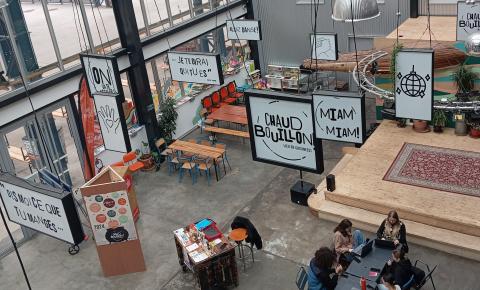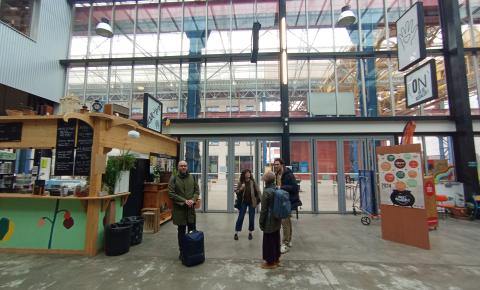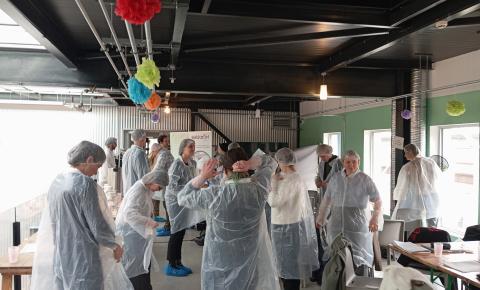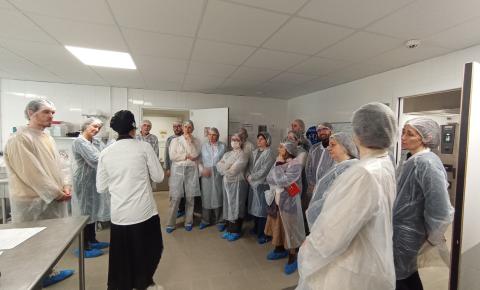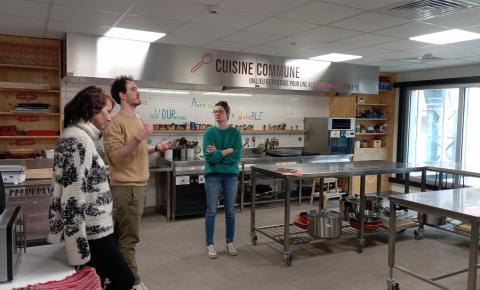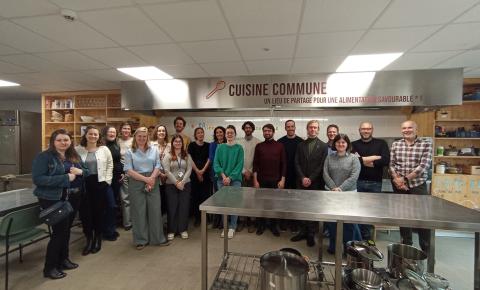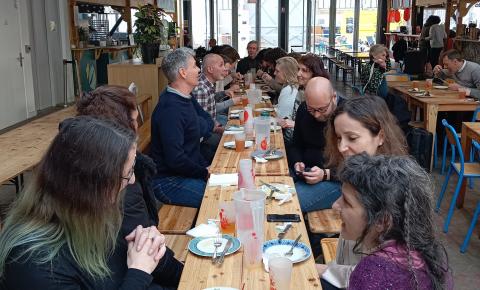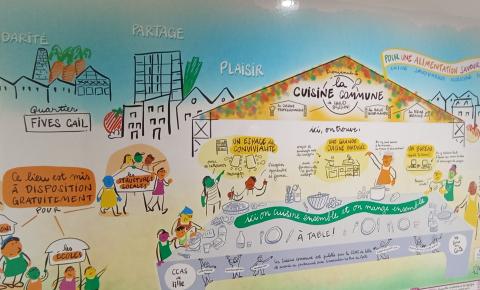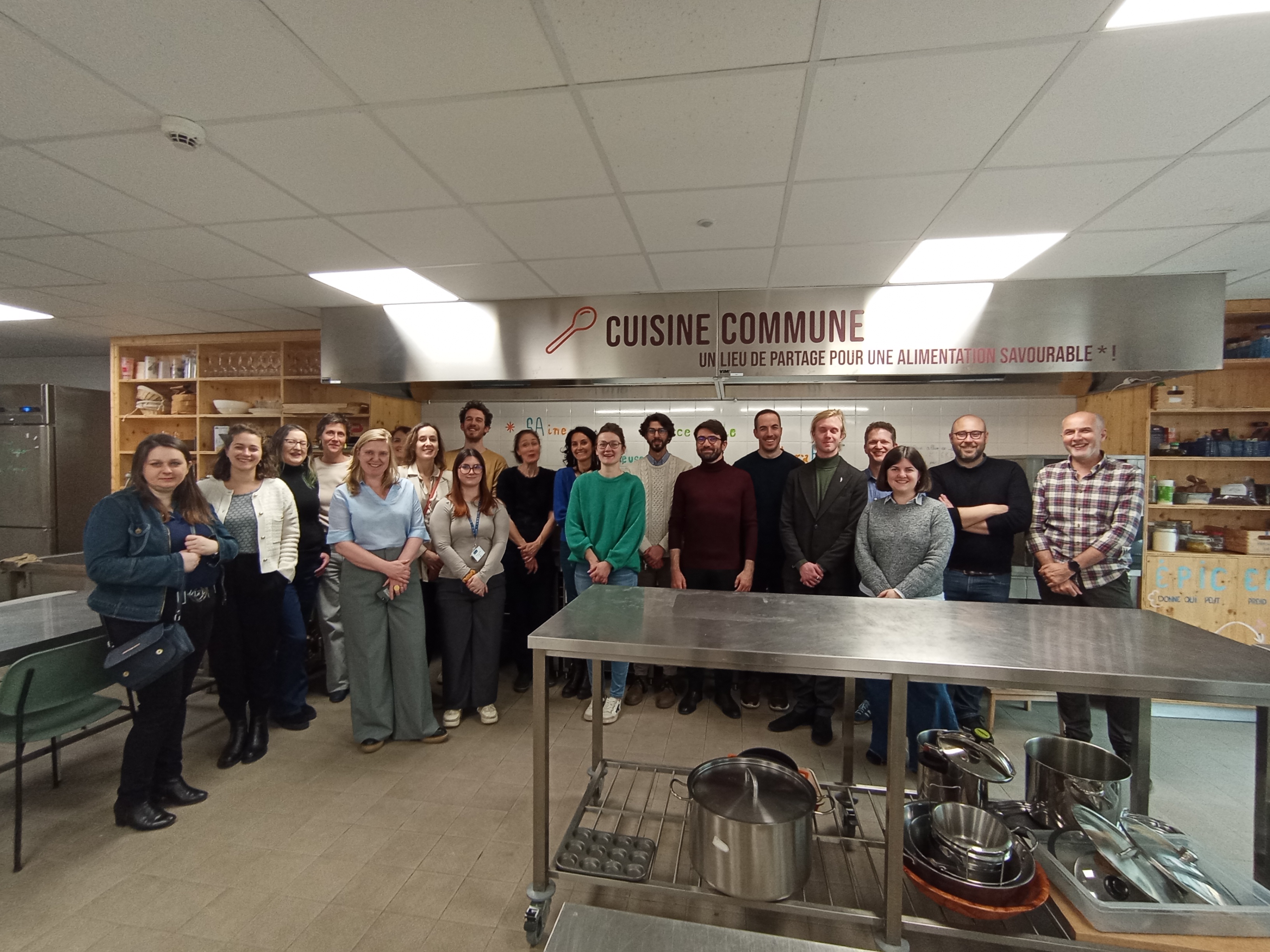
Innovative Solutions for Urban Food Systems: Insights from the Food Partnership Meeting in Lille
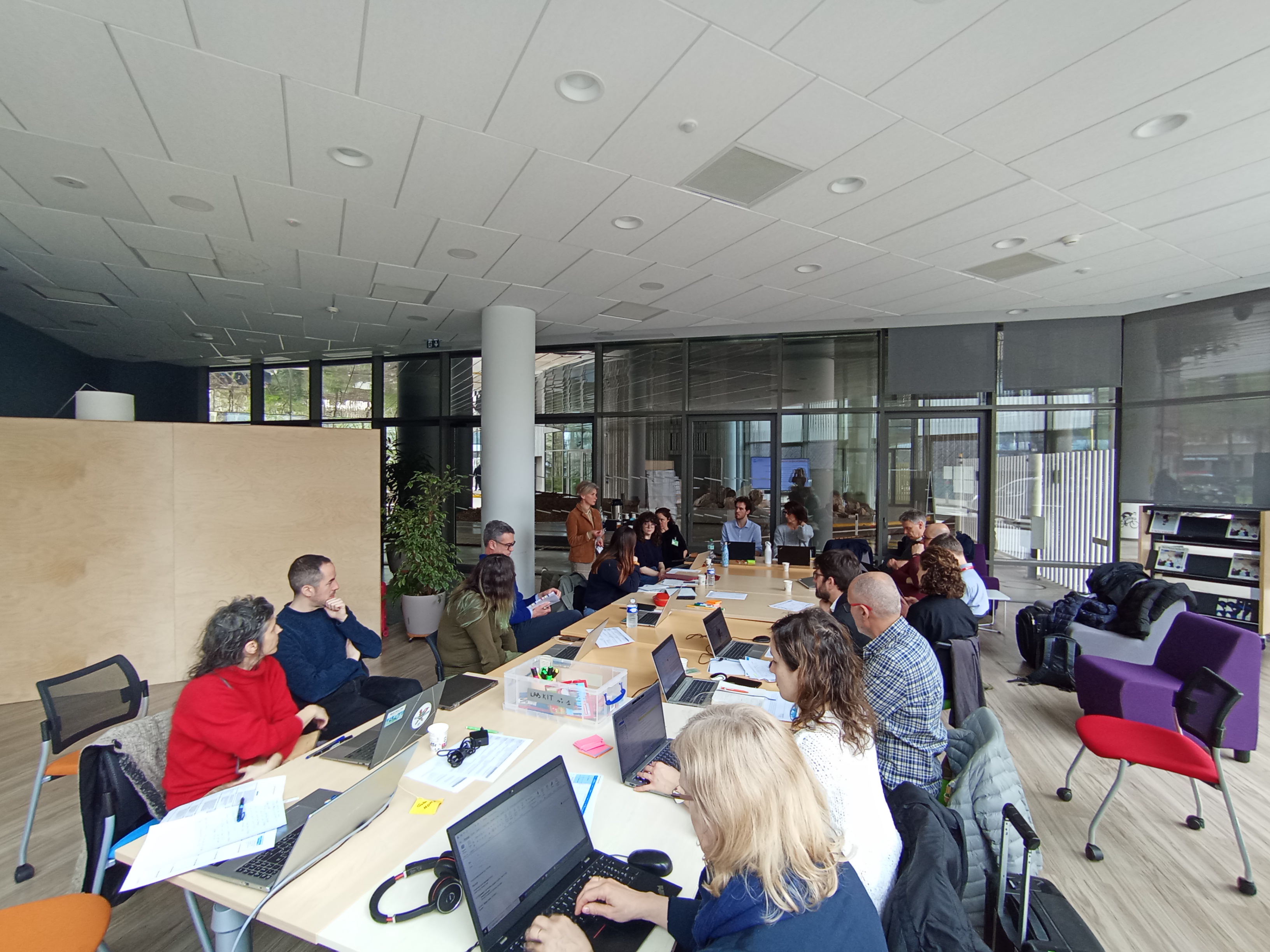
A stimulating introductory session
Charlotte Peytavit, Deputy General Manager at Lille Metropole (MEL), opened the meeting with a welcome speech highlighting the metropolitan area's strong commitment to food strategies. As a key agricultural hub, Lille Metropole plays a vital role in regional food production, with 800 farms and 43% of its land dedicated to agriculture—making food and farming central to both local communities and policymakers.
To tackle the growing challenges in the food system, MEL has launched an Agricultural and Food Strategy based on three key commitments: supporting farmers in adopting more sustainable practices, strengthening urban-rural connections and promoting food initiatives, particularly in public catering, and ensuring food accessibility for all, especially vulnerable populations.
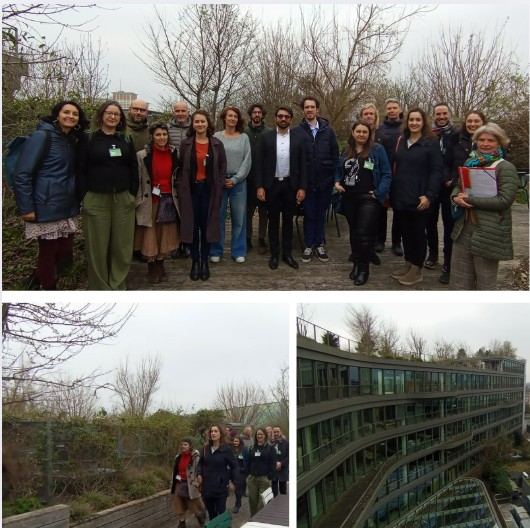
Additionally, participants were welcomed by Nathalie Cos, project lead for the European Urban Initiative at Région Hauts-de-France, Tim Caulfield Director of the European Urban Initiative Permanent Secretariat, and Merja Haapakka representative from the European Commission's Directorate-General for Regional and Urban Policy (DG REGIO).
The initial discussion among partners focused on refining and reshaping the proposed actions and outputs to ensure they are both realistic and impactful.
The first day concluded with an enlightening visit to the rooftop of MEL headquarters, a vibrant green space home to 750 trees and shrubs. This initiative enhances biodiversity, creates ecological corridors, optimises rainwater management, and helps combat soil impermeability.
Reshaping Actions to Advance the Role of Cities in Food System Transformation
On the second day, partners engaged in highly productive working sessions to finalise the Action Plan. The discussions led to an Action Plan structured around seven complementary actions aimed at supporting, promoting, and advancing the role of cities in transforming food systems, with a focus on Better Knowledge, Better Regulation, and Better Funding.
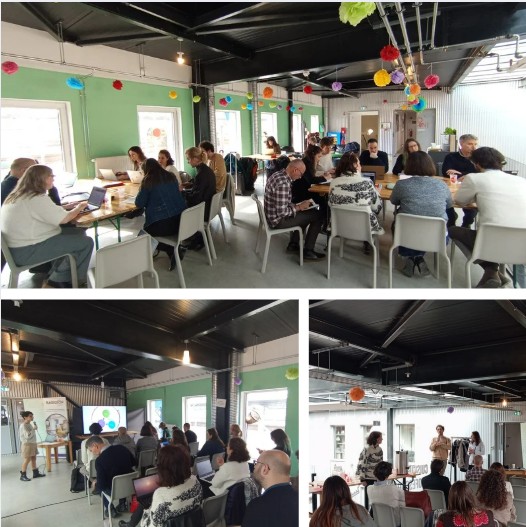
In terms of better regulation, a key action focuses on advocating for an empowering EU framework for local food policies, ensuring cross-sectoral and multi-level policy coherence from the EU to the local level. Complementing this effort is an action aimed at showcasing the role of regional and national actors in supporting and monitoring local food policies. This initiative will highlight inspiring models that demonstrate how regional and national frameworks facilitate collaborative governance, capacity building, and networking for local food policies.
Another key action under the Better Regulation pillar is the promotion of sustainable food procurement. This will be achieved through a position paper advocating for minimum standards, simplifying procurement processes. Additionally, this action will collect diverse approaches to food procurement from various contexts and projects, providing valuable insights to support food policy training.
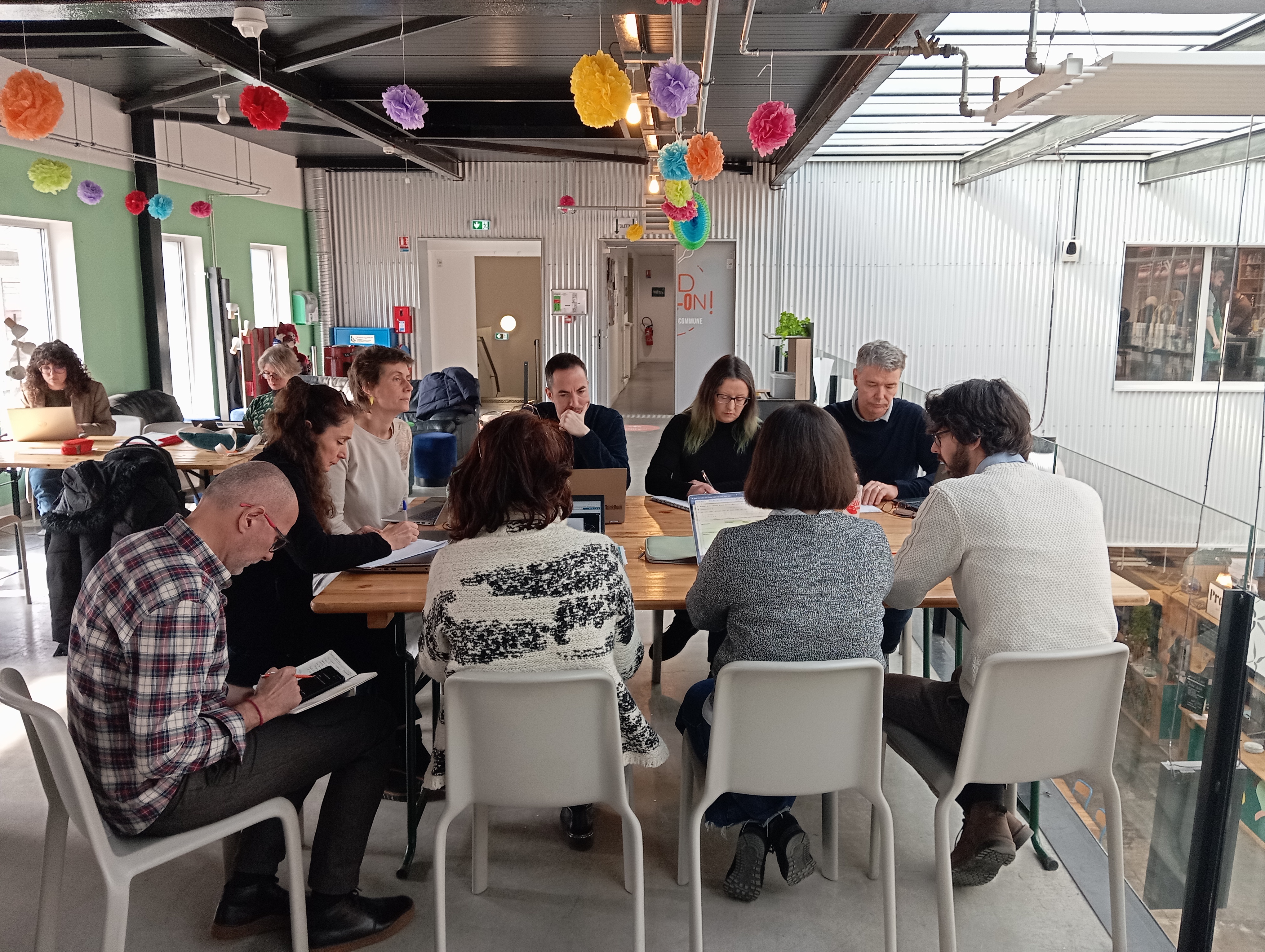
In terms of Better Knowledge, a significant contribution will come from the "Local Food Policy Training" action which will offer both online and in-person sessions on how to design, implement, and monitor a local food strategy. The training will also focus on the Better Funding pillar, offering guidance on how to secure resources for local food strategies.
Another central topic for the Partnership is the use of public land to promote food sovereignty. To address this, members agreed to establish an Interest Group focused on public land, soil health, and agriculture, aimed at fostering knowledge sharing, advocacy, and capacity-building activities.
Drawing Inspiration from Local Initiatives
Participants had the chance to gain insights from successful food projects, beginning with a presentation on key soil health projects and strategies by Jamila Bentrar from Lille Metropole. This presentation highlighted a virtual example of resource management, spanning from strategic to operational levels.
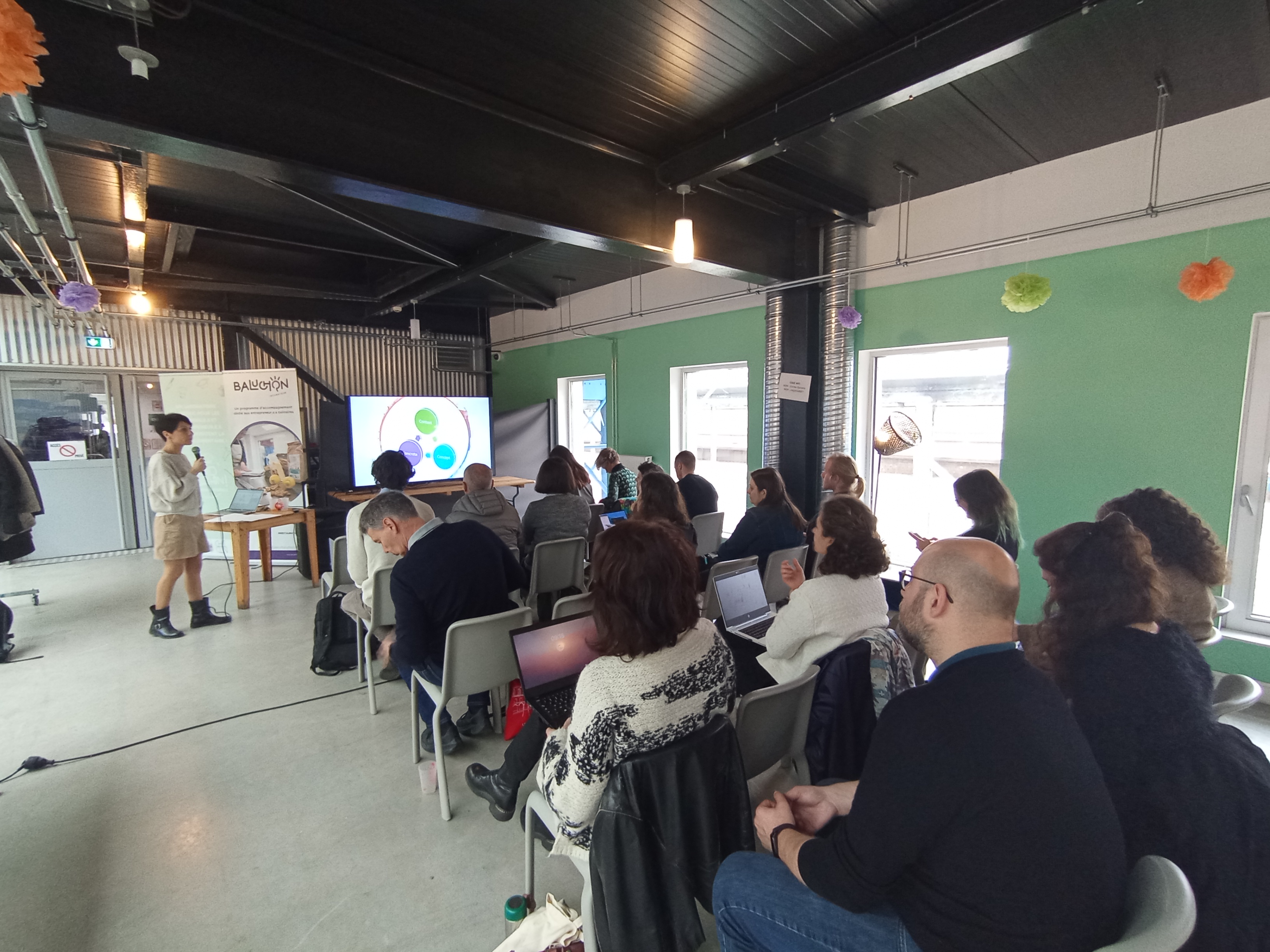
Two concrete examples at the operational level are projects that MEL is involved in: REPONSE (Projet Révélateur du Potentiel Nourricier du sol et de son écosystème), which aims to restore soil functions using healthy, locally available elements, and REVALS (REveal and VAlorise Life of Soils), a collective effort focused on restoring degraded soils and establishing an urban farm, La Ferme du Trichon. The goal of the REVALS project is to uncover the created value, integrate it into decision-making processes for public actors, and reclaim land while advancing scientific knowledge related to soil de-pollution.
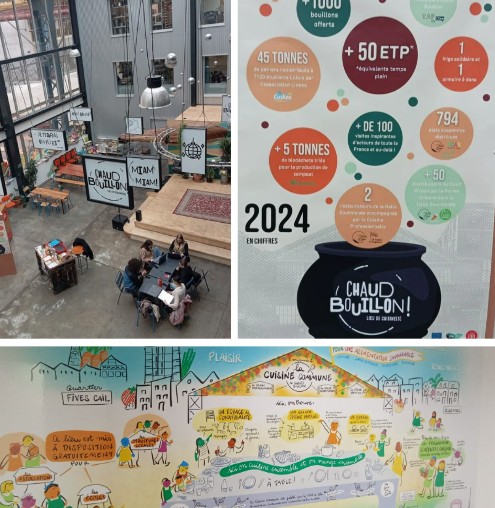
Another inspiring moment of the meeting was the visit to local actors engaged in the vibrant Chaude Bouillon space, the venue for the event. This revitalised area emphasises the central role of food in promoting local products, short supply chains, and, most importantly, fostering social inclusion, solidarity, and the creation of new job opportunities.
The space includes a “halle gourmande” where restaurateurs have committed to offering dishes made with local, seasonal products that also prioritise animal welfare. A core component of the project is the "Common Kitchen", a 200 m² shared space available to local associations and partners. This space hosts numerous workshops throughout the year, organised through a collaboration between the Centre Communal d’Action Sociale of Lille and the association Les Sens du Goût. These workshops aim to educate and raise awareness about sustainable eating, strengthen social bonds, and support solidarity initiatives.
Chaude Bouillon also includes a shared laboratory with an incubator and a solidarity catering service. The Baluchon Incubator helps culinary talents professionalise, test, and bring their projects to life. The catering service prepares dishes using fresh, local, and seasonal products while providing training for individuals seeking to re-enter the job market.
A Crucial Step Towards the Implementation Phase
As urban areas continue to confront food security and sustainability challenges, collaborative efforts, strategic regulations, and financial investment will be essential. Following this gathering in Lille, the Draft Action Plan will be presented at the meeting of the Directors-General on Urban Matters in Warsaw on 24-25 April.
Members of the Food Partnership are strongly committed to beginning the implementation phase of the proposed actions in the coming months, aiming to put concrete solutions into practice and ensure healthy, sustainable, and accessible food systems in EU cities.
